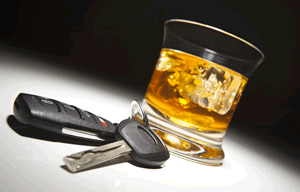My license was revoked in 2002 how can I get it back?
Recently on our legal forum we had a user ask, "How do I get my driver's license back if it has been suspended for a DUI?"
If you have been arrested for driving under the influence of alcohol or drugs you may have your license suspended or revoked for a specific period of time. The length of the suspension will vary based on state laws and whether you have had a previous DUI arrest and conviction.
Without more information about your specific case it's impossible to say for sure what steps you will need to take to have your license reinstated or whether or not it is even possible. The first step, however, is to contact the Department of Public Safety (or equivalent agency) in your state and find out what restrictions you have on your license. Generally, this information can be accessed online.
Steps to have my license reinstated after a DUI
As mentioned above state laws vary so we will speak here in generalities.
1. Complete the necessary court requirements
If you have had your license suspended for DUI you will first have to complete the court requirements. You will have to wait until the allotted suspension time has passed, take all necessary courses (i.e. take an alcohol education course if required), pay fines and get the necessary insurance. The court may require you to purchase SR-22 insurance and send proof to the DMV in your state. If you do not complete the court requirements you will not get your license reinstated.
2. Attend a hearing for reinstatement
In some states you may have to appear at a court hearing to have your license reinstated. Talk to a DUI lawyer if you have questions about your hearing.
Permanent driver's license revocation
Some drivers have been convicted of crimes which are considered so heinous they may permanently lose their right to drive. Driving is a privilege not a right. With this in mind, if you have been convicted of a 3rd or 4th D.U.I. conviction in some states you may not be able to reinstate your license. Other drivers who have been convicted of aggravated vehicular homicide, involuntary manslaughter, reckless operation, driving while discharging a firearm, driving under current suspension or revocation, evading a police officer, reckless driving with a prior criminal record or vehicular assault may also face a permanent suspension of their drivers' license.
So let's look at an example. If you live in the state of Florida and you are convicted of a DUI and it is your first offense, you may have your license suspended for a minimum of 180 days and a maximum of one year. After the year has expired you may contact the Florida Highway Safety and Motor Vehicle Department to find out how to reinstate your license.
If you are convicted of a second DUI within five years you will have your license revoked for at least five years, although you can apply for a hardship license after one year. A third DUI within ten years of the second conviction will result in a minimum ten years revocation, but you can apply for a hardship license within two years.
What if you receive a fourth DUI conviction in Florida? If you receive a fourth DUI or you murder someone within your vehicle you will receive a mandatory permanent revocation and you will not be allowed to apply for a hardship license.
Although the information provided above is specifically for Florida, other states have similar penalties for multiple DUI convictions. Contact the Department of Motor Vehicles in your state for more information.
Related Pages
Latest Question
Prenuptial agreement when can it be disregarded?
Prenuptial agreements are generally enforced but they can be disregarded if certain conditions are met.Category: Divorce



